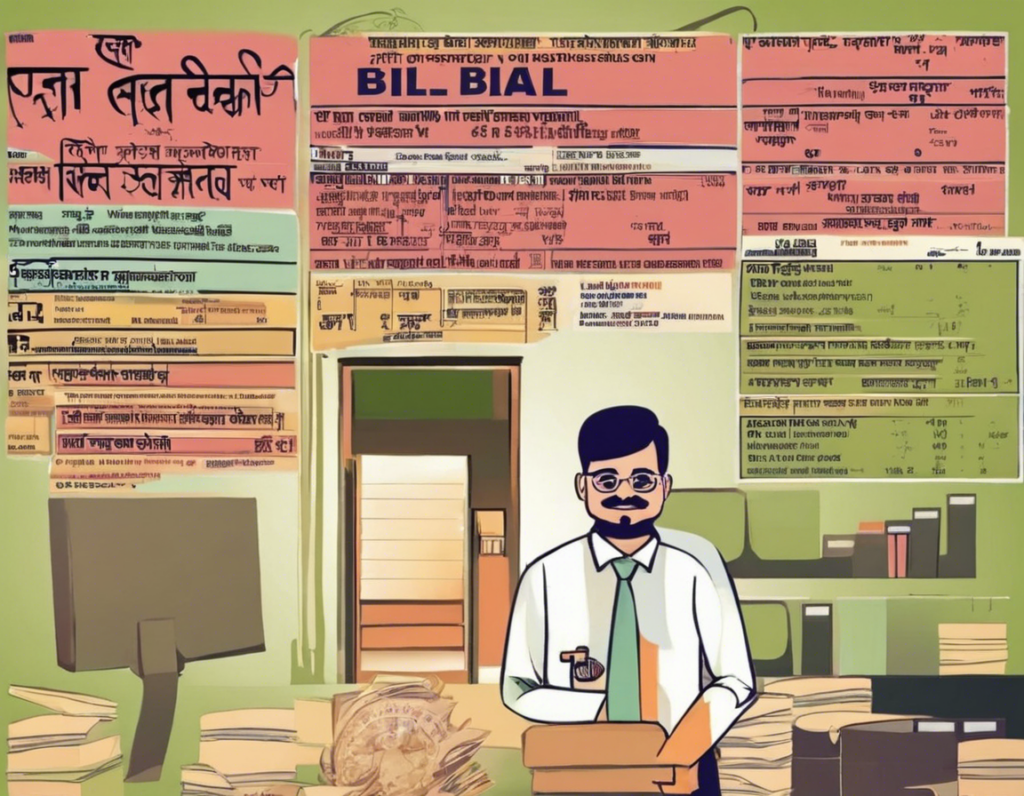Introduction
The Delhi Services Bill is an important piece of legislation that impacts individuals, businesses, and service providers in the National Capital Territory of Delhi. Understanding the nuances of this bill is crucial for compliance and smooth operation. In this comprehensive guide, we will delve into the key provisions of the Delhi Services Bill and its implications for various stakeholders. From definitions to compliance requirements, we will break down the essential aspects of this legislation to help you navigate it effectively.
What is the Delhi Services Bill?
The Delhi Services Bill, introduced in [year], aims to regulate the provision of services within the territory of Delhi. It outlines the rights and obligations of service providers, consumers, and regulatory authorities to ensure the smooth functioning of service-based businesses. The bill covers a wide range of services, including but not limited to [list services covered]. By setting clear guidelines and standards, the bill seeks to promote transparency, accountability, and quality in service delivery across various sectors.
Key Provisions of the Delhi Services Bill
- Definitions and Scope
- The bill provides clear definitions of key terms such as “service provider,” “consumer,” “service agreement,” and “regulatory authority” to avoid ambiguity and misinterpretation.
-
It specifies the scope of services covered under the bill, ensuring that all relevant sectors are included for regulation.
-
Registration Requirements
- Service providers are required to register with the designated regulatory authority before offering services in Delhi.
-
The registration process involves submitting essential documents, paying a fee, and complying with certain criteria set by the regulatory body.
-
Consumer Rights
- The bill enshrines various rights for consumers, including the right to information, the right to quality service, and the right to grievance redressal.
-
It mandates that service providers display their terms and conditions prominently and address consumer complaints in a timely and effective manner.
-
Quality Standards
- Service providers are expected to maintain high standards of service quality, safety, and hygiene as prescribed by the regulatory authority.
-
Regular inspections and audits may be conducted to ensure compliance with quality standards.
-
Dispute Resolution
- The bill outlines mechanisms for resolving disputes between service providers and consumers, such as mediation, arbitration, or consumer courts.
-
Both parties are encouraged to seek amicable solutions before resorting to legal action.
-
Penalties and Enforcement
- Violations of the provisions of the Delhi Services Bill may attract penalties ranging from fines to suspension or cancellation of registration.
- Regulatory authorities are empowered to enforce the provisions of the bill and take necessary actions against non-compliant service providers.
Compliance Guidelines for Service Providers
- Registering with Regulatory Authority
- Service providers must complete the registration process with the designated regulatory authority before commencing operations.
-
Ensure all necessary documents are in order and comply with the registration criteria specified in the bill.
-
Maintaining Quality Standards
- Regularly monitor and assess the quality of services provided to ensure they meet the standards set by the regulatory authority.
-
Implement protocols for safety, hygiene, and customer satisfaction within your service establishment.
-
Consumer Communication
- Clearly communicate terms and conditions of service to consumers, including pricing, cancellation policies, and grievance redressal mechanisms.
-
Respond promptly to consumer inquiries and complaints to demonstrate a commitment to customer satisfaction.
-
Record-Keeping and Compliance
- Maintain accurate records of transactions, service agreements, and any interactions with consumers for compliance and documentation purposes.
- Stay updated on any changes or amendments to the Delhi Services Bill to ensure ongoing compliance with regulatory requirements.
FAQs (Frequently Asked Questions)
- Who is required to register under the Delhi Services Bill?
-
All service providers offering services within Delhi, as specified in the bill, are required to register with the regulatory authority.
-
What are the penalties for non-compliance with the Delhi Services Bill?
-
Non-compliance may result in fines, suspension of registration, or cancellation of registration, as determined by the regulatory authority.
-
How can consumers file a complaint against a service provider under the Delhi Services Bill?
-
Consumers can file complaints with the designated regulatory authority or seek redressal through mediation, arbitration, or consumer courts.
-
Are there specific quality standards that service providers must adhere to under the Delhi Services Bill?
-
Yes, service providers are expected to maintain high standards of service quality, safety, and hygiene as prescribed by the regulatory authority.
-
Can service providers appeal against penalties imposed under the Delhi Services Bill?
- Yes, service providers have the right to appeal against penalties or enforcement actions through the appropriate legal channels as outlined in the bill.
Conclusion
Navigating the Delhi Services Bill requires a clear understanding of its provisions, compliance requirements, and implications for both service providers and consumers. By familiarizing yourself with the key aspects of this legislation and adhering to the prescribed guidelines, you can ensure smooth operations, regulatory compliance, and consumer satisfaction within the service industry in Delhi. Stay informed, stay compliant, and uphold the standards set forth by the Delhi Services Bill for a robust and sustainable service ecosystem.
